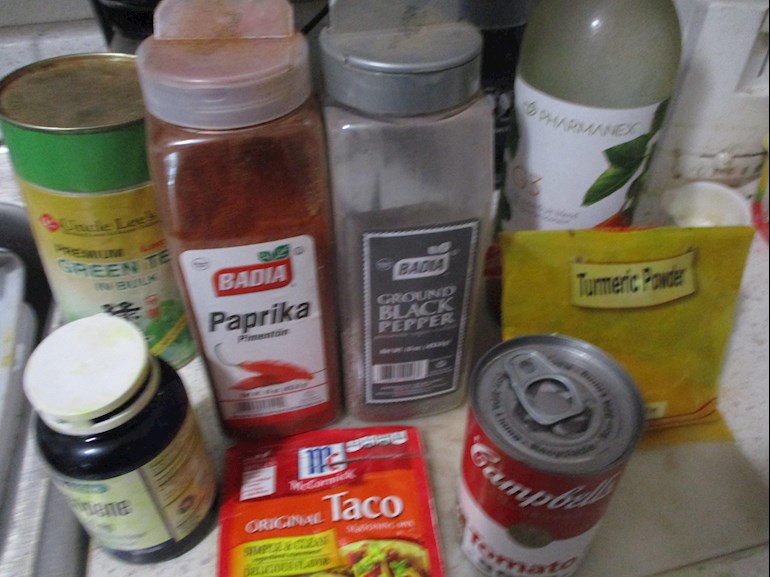Made this list years ago. Best to keep them in mind when grocery shopping or cooking.
Walnuts, have to eat a ton.
Hot peppers, watch out for too much it can cause stomach cancer.
Tomatoes, V8 juice Gac juice, other lycopene sources. Catsup.
Watermelon, also a lycopene source but no cooking involved.
Black pepper, especially with tumeric.
Pomegranite, small doses.
Garlic, for selenium apparently.
Rosemary, just grow it in garden, don't use pesticides.
Apricot pits, but small doses, a few a day maybe at most.
Bittermelon, found in Chinese markets, hard to find.
Tumeric, find in Indian stores.
Ginger, root I think. I like the sugar coated kind.
Paprika?
Green Tea? pubmed.ncbi.nlm.nih.gov/179... (a mouthful)
Best to Google any of them before you go into them.
